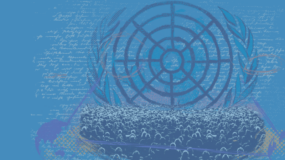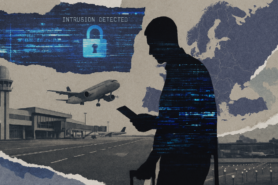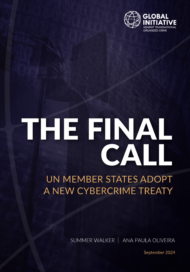Posted on 18 Nov 2025
The UN’s first treaty to combat cybercrime received an unexpectedly high level of support at a dedicated conference in Vietnam in October, with 72 countries adding their signatures to the landmark document. However, ongoing concerns about its implications for human rights, and the absence of big technology companies, mean that while it has been signed, its future is uncertain.
The Convention against Cybercrime was adopted by consensus by the UN General Assembly in December 2024, demonstrating support from governments across the world. However, it has faced criticism from some quarters who feel that the convention could be weaponized by authoritarian regimes. Indeed, the success of the signing event in Hanoi was tempered by low attendance from the private sector and NGOs (compared to the diverse and broad multi-stakeholder participation in the negotiation stages), as well as the conspicuous absence of any non-Vietnamese heads of government.
The UN General Assembly voted to begin the drafting process in 2019, at the instigation of Russia, who wanted a global treaty instead of the existing Council of Europe Convention on Cybercrime. From the outset, the treaty negotiations were marked by polarization and a lack of consensus, and the final convention differs significantly from Russia’s proposed versions, which would have included broad criminalization provisions and a lack of human rights safeguards. Most notably, the classification of cyber-dependent crimes is narrower, to avoid the broad criminalization of online activities by individual governments. In addition, overarching human rights safeguards have been incorporated in an effort to prevent the document from being exploited for authoritarian or oppressive purposes.
The broad range of signatures achieved in Hanoi demonstrates that for the Western and other countries who were most suspicious of the new treaty, those concerns have now been allayed, and that the potential benefits of cooperation under the treaty are deemed positive enough to outweigh the risks.
Nevertheless, the convention’s wording is still criticized by many outside government for its sweeping approach to international cooperation, e-evidence sharing and data collection, as this could have implications for privacy, discrimination and fundamental freedoms. Its robust investigative and compulsion powers have also been questioned, given that they rely on potentially weak national judicial systems and – as yet – limit international oversight.
This has led human rights and data privacy NGOs, as well as major technology conglomerates, to remain firmly opposed to its adoption and implementation, albeit for different reasons. While the NGOs’ concerns are legitimate, big tech’s lack of engagement may be a strategy to avoid regulation and protect profits, rather than a genuine commitment to uphold human rights.
Although Google was present in Hanoi, other major corporations and coalitions that had played an active role in the negotiations chose not to participate in the signing ceremony, indicating a rejection of the treaty by the technology industry. NGOs focused on human rights and data privacy were also not in attendance and made their opposition to the convention clear through media statements.
Throughout the negotiations, the Global Initiative Against Transnational Organized Crime had taken strong positions on these issues. We participated in the conference recognizing that the convention had been adopted by consensus at the UN General Assembly, signaling broad interest among a diversity of member states to make it work. There is also optimism among specialized law enforcement and NGOs working on online child sexual abuse, and wildlife and human trafficking that the convention could strengthen efforts against these forms of transnational organized crime.
Usually, the sign of a good negotiation is when both sides emerge equally unhappy. In this case, the mood at the Hanoi conference was an even level of enthusiasm from the Western countries that had originally opposed the talks, and from Russia, China and others who had proposed and backed them. This is evident in the spread of countries that signed the document.
The 19 African signatories included all stripes of government from North, West and southern Africa. The sign-up rate was widespread among Western European countries and their aligned states, including the EU, the UK and Australia. Notably, the US did not sign the treaty, but has not ruled out doing so in the future. Russia and China’s allies also signed up, including Cuba, Nicaragua, Venezuela, Iran and North Korea, as did their regional and international adversaries. A total of 10 Latin American countries from across the political spectrum are now signatories.
These 72 states will now begin the process for ratifying the treaty. Given the level of support so far, it should not take long to reach the 40 ratifications required for the treaty to enter into force. The ad hoc intergovernmental committee of experts is continuing its informal negotiations on the rules of procedure for the treaty’s Conference of Parties, to be agreed at its next meeting in January 2026.
The level of engagement reflects the genuine opportunities that many of these countries see in the convention. It provides a platform to enhance international cooperation and develop cyber capacity in the Global South. It could also facilitate improved legislation in specific areas; for instance, one of the nine chapters is entirely devoted to tackling the dissemination of child sexual abuse material.
But the high number of signatures was not matched by a high level of diplomatic representation at the conference, suggesting a potential vulnerability in terms of political will. Although UN Secretary General António Guterres was in attendance, no countries sent heads of government, and only one foreign minister – from the Maldives – was present. This lack of high-level political attendance at the signing ceremony raises serious concerns about commitment to implement the treaty, beyond the political symbolism of signing it.
Even Russia and China, who had led efforts to make the treaty a reality, were only represented by the Russian prosecutor general and the local Chinese chargé d’affaires. The participation of the Russian delegate served as a reminder of current geopolitical tensions, casting a shadow over an otherwise positive moment for multilateralism. Several Western representatives chose not to take part in the group photograph due to his presence, as he is subject to UK and US sanctions as a result of Russia’s war of aggression in Ukraine.
All of this reveals the fragile ecosystem behind the multitude of signatures, and indicates a lack of confidence and common vision among the states and stakeholders engaged in the process. Building trust between governments, the private sector and relevant NGOs will be vital to ensure the treaty is implemented effectively. In addition, in order to make the most of its potential and prevent its use for malicious purposes, experts on cyber security, investigations, community resilience, human rights and data privacy will need to be included in the implementation and oversight process.
The diversity of the stakeholders who participated in the convention’s Ad Hoc Committee, which included representatives from civil society, the private sector and academia, should serve as a role model as the Conference of Parties determines the implementation mechanism. A closed and restrictive conference would be a missed opportunity to address a global threat, and will damage the convention’s chances of success.
The 2025 Global Organized Crime Index draws attention to the global surge in cyber-dependent crime, classifying it as a ‘central, rapidly escalating threat to global stability’. As the Index illustrates, this illicit market is now responsible for financial losses equivalent to the GDPs of major economies, fuelling substantial criminal innovation and recruitment in the process. Cross-sector collaboration based on human rights and the rule of law will be crucial to increase resilience to this form of transnational organized crime, and this new convention provides a key opportunity to do so.



